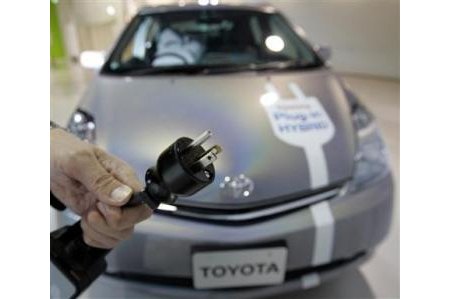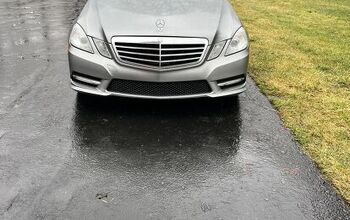4 Views
Toyota Talks Down PHEV Impact
by
Edward Niedermeyer
(IC: employee)
Published: April 10th, 2008
Share
Nikkei Tech-On says Toyota Fuel Cell Engineering Manager Taiyo Kawai told the NHA National Hydrogen Conference that plug-in hybrids (PHEVs) won't deliver a tremendous reduction in fuel consumption. According to Toyota's calculations, given a 20 to 40 mile plug-in range and U.S. driving patterns, "the maximum contribution that PHEVs can make in an effort to break dependence on fossil fuels or to halve CO2 emissions is a 20 to 30% reduction in energy." Kawai told the crowd that the plug-in Prius' cell system's power storage performance is "far below that of gasoline and hydrogen." Hang on. Did we just learn an inconvenient truth about PHEVs, or is this just so much pro-fuel-cell hot air?
Edward Niedermeyer
More by Edward Niedermeyer
Published April 10th, 2008 12:15 PM


































Comments
Join the conversation
The quote is somewhat engrish, but it looks like he is claiming that plug-in hybrids could cut energy consumption by 20-30%. If an opponent of plug-in hybrids is willing to admit that they could cut energy consumption 20-30% I would say that is a pretty huge endorsement of the technology.
Just looks like realistic expectations are being set... as in, PHEVs alone aren't going to solve a CO2 emissions problem. Right. And Toyota doesn't have to discourage people from buying and driving GM's PHEV - the Volt price tag will do very effectively all by itself. And, do we replace perhaps 5% of the vehicle fleet every year? If every vehicle produced in 2008 was a PHEV, it would still take 20 years to work the regular gassers out of the system.
alexdykes: true, but it's much easier to control emissions from a couple of smokestacks than from millions of individual tailpipes. plus, if utilities sell more power, they may more easily justify the expense of implementing existing cleaner technology. emissions reductions depends on the source of the power and, importantly, when the PHEVs will be charged. implemented haphazardly, PHEVs could have no effect, or even negative effects, on emissions. if the vehicle-to-grid technology is implemented (it is already in existence), and PHEVs are able to give power back to the grid, PHEVs may be able to help balance load, regulate current and provide peak power and reserve capacity. utilities spend huge sums of money for these services. so PHEVs may not be the end all, but they are a step. plus, with enough PHEVs on the road, clean energy like wind power may be able to be widely implemented - they would store excess wind power generated during high wind, low demand periods, and send power back to the grid when it's not windy, or during peak demand. this may all sound like a high hopes, but i'm writing a paper right now on PHEVs and their effect on the grid for my sustainable energy policy class, so it's quite fresh in my head.
"Under-promise and over-deliver" is a tried and true rule for business success. Toyota doesn't want to get the plug-in proponents' hopes up too high this early.